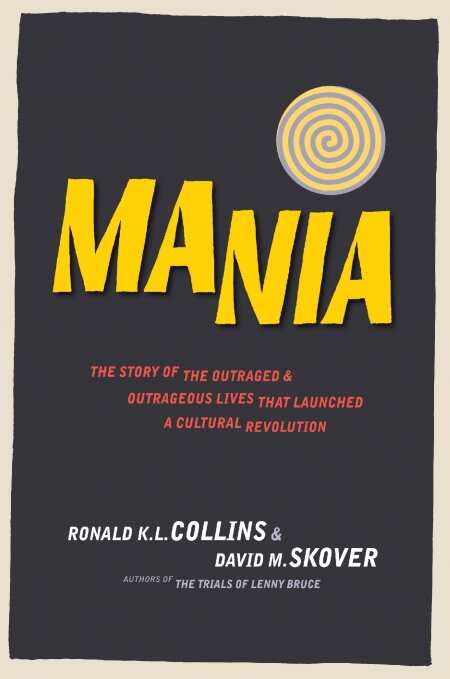Mania
The Story of the Outraged and Outrageous Lives That Launched a Cultural Revloution
- 2013 INDIES Finalist
- Finalist, History (Adult Nonfiction)
When it comes to the cultural revolution of the ’60s and ‘70s, the hippies get the lion’s share of attention. However, it was the Beat Generation of the ’50s that actually pioneered the drug and sex culture that later grew into the youthful rebellion commonly associated with hippies. Mania tells the story of that earlier movement, delving into the lives of such memorable Beat characters as William S. Burroughs, Allen Ginsberg, and Jack Kerouac.
Rather than follow journalistic convention, authors Collins and Skover, who also wrote The Trials of Lenny Bruce, write in narrative style. They recount stories in anecdotal fashion that serve to place the reader in the middle of the action. This “montage of vivid snapshots,” write the authors, is designed to help the reader “experience something of the remarkable and risky lives these men and women lived … and to experience it all without being overwhelmed by mountains of data.”
The result is at times stunning, disturbing, and remarkably intimate, as if one is spying on the protagonists and eavesdropping on their private conversations. For example, the authors reconstruct the murder of David Eames Kammerer by Lucien Carr, regarded as the “fallen angel” of the Beats, in grisly detail; they paint a painful portrait of the troubled childhood of poet Allen Ginsberg; and they show the extent to which Jack Kerouac was obsessed by personal demons, even as he labored to become a published author.
A particularly fascinating part of the story involves the 1957 landmark obscenity trial concerning Allen Ginsberg’s scatological poem, “Howl.” The authors not only describe the case, they demonstrate how the outcome shaped the manner in which obscenity was defined. Ultimately, the decision of a judge led to the wide release of Ginsberg’s work and immortalized him as one of the driving forces of the Beat Generation.
While Collins and Skover relay anecdotes about the Beats in little slices of time, the authors are clearly conscious of the fact that the reader might want to know the full story of their lives. This is why the authors offer succinct thumbnail sketches of the major players in an epilogue, a fitting end to the book.
With Mania, Collins and Skover provide readers with a rare close-up of the lives, the loves, the trials, and the tribulations of a handful of rebels who forged new cultural ground. It is likely this book will help assure that the key figures of the Beat Generation will not soon be forgotten.
Reviewed by
Barry Silverstein
Disclosure: This article is not an endorsement, but a review. The publisher of this book provided free copies of the book to have their book reviewed by a professional reviewer. No fee was paid by the publisher for this review. Foreword Reviews only recommends books that we love. Foreword Magazine, Inc. is disclosing this in accordance with the Federal Trade Commission’s 16 CFR, Part 255.

